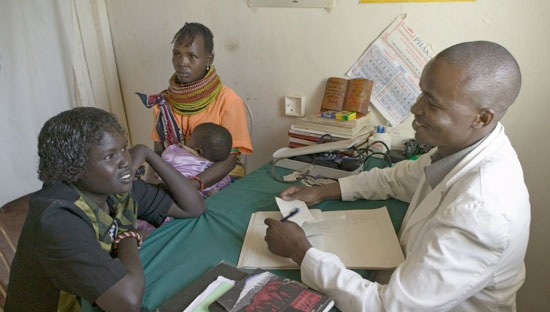Nexleaf | 
Objectives
- Look for patterns in temperature failures—specific clinics, types of refrigerators, and more—to identify which clinics could most stand to benefit from opportunities for improvement.
- Help Nexleaf improve the cold chain supply to deliver more unspoiled life-saving vaccines to people in need
- Get additional insight into how data analysis can be improved in the future to help Nexleaf achieve their impact
Findings
- Clinics are encouraged to manually check refrigerator temperatures 2x a day. Analysis showed that temps could fluctuate and spoil vaccines in between those regular check-ins and staff would never know
- The DataCorps team found no correlation between a specific model of refrigerator and temperature failures, meaning that a solution will be more complicated than just buying new fridges for clinics
- We assumed that a location with frequent power outages might suffer from more frequent temperature failures (and vaccine spoilage) however, analysis showed that wasn’t the case.
- The handwritten notes taken by clinic staff provided our team with valuable contextual data, reminding us all that good data isn’t limited to numbers
Question
Today we normally don’t doubt the reliability of life-saving vaccines. Since 1955, when Jonas Salk invented the polio vaccine, many life-threatening diseases have been practically eradicated.
But vaccines are biological products and must be refrigerated within a specific range or risk being spoiled. In some cases doctors in developing countries may provide spoiled vaccines to patients, without ever knowing that they were spoiled.
In order to ensure that people in developing countries have access to life-saving vaccines, medical providers must find ways to perfect the cold chain supply– transporting vaccines across vast distances, via plane, bus and jeep and then storing them in reliably cool conditions in order to benefit rural or remote populations.
That’s where Nexleaf comes in. This California tech nonprofit transforms everyday objects into connected devices, in the process making a huge impact on people’s lives by improving their health and environment.
One of their landmark projects, called ColdTrace, hooks up cell phones loaded with special temperature-reading software—developed by Nexleaf—to transportation storage units and refrigerators in health clinics that house vaccines to monitor how effectively the inventory is maintained.
Nexleaf gets tons of data through these mobile phones. Could the data show them where they might better allocate their attention and resources, whether toward specific locations or during different time periods? Could they improve or expand the data they get for better future analysis?
What Happened
Nexleaf and DataKind joined forces in 2013 to launch a DataCorps program—a months-long collaboration in which Nexleaf’s expert staff and a team of volunteer data scientists combined their considerable skill sets to tackle some big issues. And it started with the loads of data Nexleaf collects from the cell phones they’ve rigged at 17 health clinics in Kenya and Haiti.
Nexleaf works with on-the-ground partners like MedicMobile to implement their ColdTrace technologies, and got their feedback to learn what kinds of questions were worth answering to groups addressing public health issues in Kenya and other partner countries.
The phones capture temperature data every minute, and bundle it every 10 minutes for transmission. They also capture the phone’s battery data, critical because most of the phones are hooked to the same power source as the refrigerator. If the refrigerator loses power, the phone battery starts to drain, which can then alert clinic staff to a problem. This tells Nexleaf about power reliability in Haiti and Kenya, where electricity is not always a constant.

Example graph: Temperature readings at health clinics in Kilifi
By asking the right questions of the data, our DataCorps team was able to help Nexleaf to improve their monitoring technology and help on-the-ground partners to prevent vaccines from spoiling and save lives.
Read more about the movement to expand access to vaccines:
- UNICEF: Expanding Immunization Coverage
- Gavia Alliance: Real Life Stories from the Frontlines of Immunization
- The Gates Foundation: Improving the Vaccine Supply Chain Will Give More Kids a Shot at a Healthy Life
- UNICEF: The Cold Chain Supply Market



